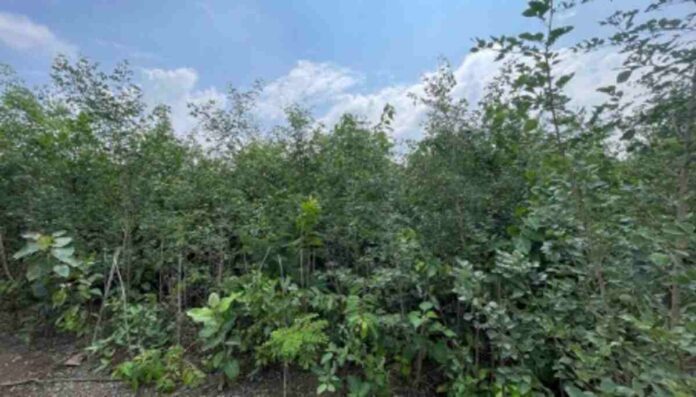Rapid urbanization and growing urban affluence tend to have profound environmental consequences, causing threats to human beings and the environment. Prolonged ignorance of the ecological feedback is affecting every living and non-living element on Earth.
One of the most effective strategies to combat these challenges is afforestation. By planting trees, we create natural carbon sinks that absorb carbon dioxide (CO2) from the atmosphere. Beyond sequestering carbon, trees enhance biodiversity, improve air quality, and offer resilience against the effects of climate change.
Recognising the gravity of the climate situation, India has initiated various efforts to encourage people to increase green cover in metropolitan areas. Missions such as the National Afforestation Programme (NAP), the National Mission for a Green India (GIM), the Forest Fire Prevention and Management Scheme (FFPM), and the ‘Ek Ped Maa Ke Naam Abhiyaan’ launched to promote afforestation in urban cities. PM urged citizens to take a selfie at your Kitchen Garden and with the saplings planted on social media to take the movement to masses engaging people in greening their locality.
Aligned with these government initiatives, the Planet & Wellbeing project, a CSR initiative of VOIS, designed and executed by the Vodafone Idea Foundation and implemented by Indev Consultancy, is making significant strides in urban afforestation. Over the years under the initiative around 45,000 trees have been planted in Ahmedabad, Bangalore, and Pune. Plantation has been done using Miyawaki method under which saplings grows 10 times faster, 30 times denser, and absorb more carbon compared to traditional plantation methods.
It has brought transformation in the landscape and has turned barren spaces into vibrant ecosystem for biodiversity to thrive and has improved the green cover in urban settings, contributing to biodiversity, carbon sequestration, and climate resilience. This has created vibrant green zones via cooperation with important stakeholders such as Municipal Corporations, Industrial Corporations, the Forest Department, and the Air Force. The saplings are maintained for two years until they create a self-sustaining environment in which biodiversity may thrive. After a year, the plantation site saw abundant biodiversity—the aroma of flowering flowers, the buzz of bees, and the joyous chirping of birds.
As per the globally accredited methodology provided in the studies by IPCC, FAO, & UNFCCC, the plantations done till now have showcased a remarkable stride in battling carbon emissions, with an estimated 20,238.20 kg CO₂ sequestered by 2024. The trees will trap an estimated 37,718.30 kg CO₂ in the coming year, helping to mitigate climate change and have a favourable influence on the environment. Beyond reducing greenhouse gas emissions, these plantation initiatives have increased biodiversity, improved air quality, and enhanced urban ecosystems in these locations.
This initiative not only addresses local environmental challenges but also aligns with India’s broader commitments under the Paris Agreement to combat climate change. Planet & Wellbeing project contributes to a national movement aimed at mitigating global warming and achieving a net-zero future.
Beyond planting trees, the Planet & Wellbeing project fosters climate awareness among students, and youth enriches knowledge through a dynamic hub VOISPLANET (https://voisplanet.com/ ), and leverages innovative tools to inspire actionable climate solutions within communities. The initiative exemplifies a model of sustainable development that aligns with India’s commitments under the Paris Agreement and the United Nations Sustainable Development Goals (SDGs).
As we continue to face the impacts of climate change, there is a dire need for collective efforts to showcase the transformative power of collective action. With the support of communities, government authorities, and corporates, we can make meaningful progress toward greening urban spaces and creating a sustainable future.



